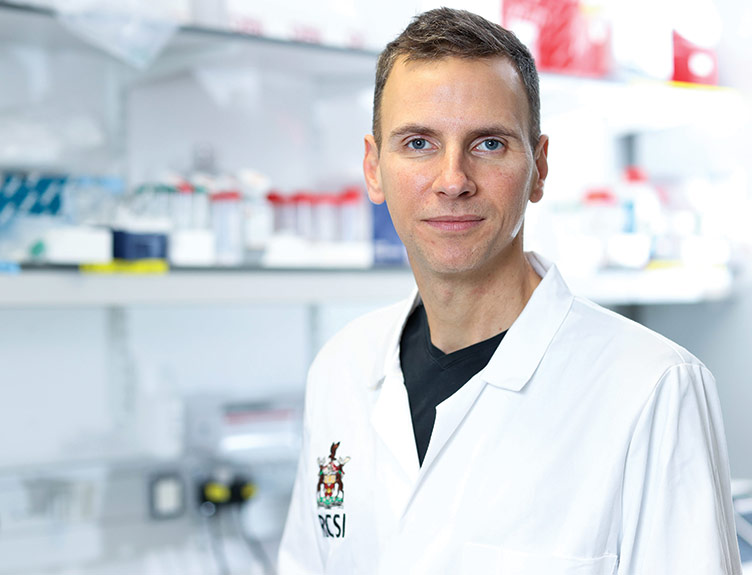TERG researchers sweep up accolades at bioengineering conference

The 21st Annual Conference of the Bioengineering Section of the Royal Academy of Medicine in Ireland BINI 2015 turned out to be a big success for the RCSI-based Tissue Engineering Research Group (TERG) as its members won a number of awards for their research.
This conference took place in the Carton House Hotel, Maynooth in Co. Kildare from 16-17 January. Dr Cathal Kearney, a senior TERG researcher won the Royal Academy of Medicine in Ireland (RAMI) Bioengineering Division Bronze Medal, awarded for the best overall presentation at the conference. His presentation was entitled ‘Switchable Release of Entrapped Nanoparticles from Alginate Hydrogels’.
TERG PhD student David Walsh was awarded second prize in the Early Researcher category for his presentation entitled ‘Synthesis and Formulation of Star Shaped Polypeptides as Non-Viral Vectors to Produce Gene Activated Matrices for Bone Tissue Engineering’.
Darina Gilroy, a MSc research student working with Cathal Kearney in TERG, was awarded first prize in the Research Student category for her presentation entitled ‘Magnetically Responsive Biomaterials for Stem Cell Activation’.
Dr Gráinne Cunniffe, a previous member of the TERG who is now a postdoc in the Trinity Centre for Bioengineering, was awarded second prize in the Mature Researcher category for work that was done in collaboration with TERG. The title of Grainne's presentation was ‘Growth Plate Extracellular Matrix-derived Scaffolds Support Osteogenesis of MSCs In Vitro and Accelerate Host-mediated Bone Healing In Vivo’.
Finally, Professor Fergal O'Brien, Professor of Bioengineering & Regenerative Medicine and Head of TERG was announced as the incoming President of the Royal Academy of Medicine in Ireland Bioengineering Division. Congratulations to all on such an impressive haul at this event.
The Tissue Engineering Research Group (TERG) at RCSI utilises biomaterials expertise to develop construct and living system technologies that can restore the structural and functional properties of damaged or degenerated tissue types, whilst also trying to expand fundamental understanding in the fields of mechanobiology and osteoporosis.
The Bioengineering in Ireland Conference is established as one of Ireland's longest-running and most active research conferences in engineering and science, and brings together multidisciplinary researchers working across a range of applications targeted at improving health and healthcare. The conference is an occasion for young researchers and graduate students to present their work alongside senior researchers of international standing. The conference is a forum for presentation and discussion of all aspects of bioengineering research, including (but not limited to) biomechanics, biomaterials, bioelectronics, tissue engineering, and medical devices.



